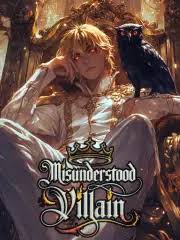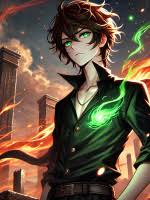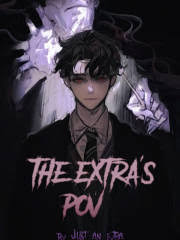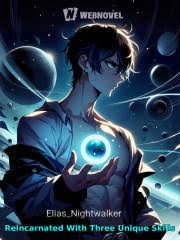The Story in 3 Sentences
A man is reincarnated into the body of a universally despised villain, fated for a brutal execution for crimes he never personally committed.
He is bound by a mysterious system that forces him to relive and project his memories, revealing that every one of his cruel acts was a profound sacrifice or a tragic misunderstanding designed to protect others.
The powerful heroines who once hated him are forced to witness this true history, their vengeance turning into devastating grief and regret for the man they failed to understand.
Why It Stands Out
1. The Anatomy of a Misunderstanding
The novel’s genius lies in the vast, ironic chasm between the protagonist’s actions and the world’s perception of them. His calculated, system-forced cruelty is consistently misinterpreted as hidden nobility, transforming him from a reviled villain into a tragic martyr in the eyes of those who once sought his head. This relentless dramatic irony is the engine for both its comedy and its deep, emotional poignancy.
2. Emotional Payoff Over Power Fantasy
While the protagonist grows stronger, the core of the story is an unflinching focus on emotional consequence. It is a gut-wrenching exploration of grief, regret, and the painful unraveling of truth. The heroines’ journeys from hatred to devoted mourning are messy, raw, and feel earned, prioritizing cathartic character drama over standard power-leveling progression.
3. A Subversion of Tropes
The story brilliantly deconstructs the familiar villainess and reincarnation genres. These women are not one-dimensional schemers but complex figures whose villainy is a facade crafted by trauma and societal pressure. The narrative forces them and the reader to question black-and-white morality, exploring the idea that history is written by the winners and true heroes are often casualties of a flawed narrative.
Characters That Leave a Mark
There’s Lady Vespera – Labeled a tyrant for her iron-fisted rule, the memory projections reveal a woman who took power to prevent a civil war after her family’s slaughter, her perceived cruelty a desperate attempt to protect the commoners from a predatory nobility.
You’ll meet Sylphine, the accused witch who supposedly cursed a city, now revealed to have been attempting to purge a plague unleashed by the real villain, spending decades afterward secretly healing the very survivors who despised her.
And Isolde? She’s the assassin-princess called a ‘mad dog’ for her bloody past, whose rampage was actually a desperate bid to expose deep court corruption, her violence reinterpreted as the tragic action of a weapon discarded for growing a conscience.
The Flaws Fans Debate
The central mechanism of memory projection and misunderstanding, while powerful, can feel repetitive over the story’s substantial length, making some plot developments predictable to readers.
The story’s conclusion and the ultimate resolution of the harem dynamic have been points of contention, with some fans feeling the payoff was rushed compared to the meticulous and prolonged emotional build-up.
The protagonist’s power progression is often tied directly to system rewards for completing tasks, which some enthusiasts of traditional, training-based cultivation systems find less satisfying.
Must-Experience Arcs
Ch. 1–50: The Foundation of Lies – The initial transmigration and the protagonist’s desperate, clumsy attempts to fulfill his system’s evil mandates, setting the stage for the first major misunderstandings that establish the core ironic dynamic.
Ch. 150–200: The Purge of Fam Iblis – A large-scale arc where the protagonist’s actions during a city-wide plague are revealed to be a brutal but necessary sacrifice, fundamentally shattering the heroines’ worldview and solidifying his tragic legend.
Ch. 400–465: The Legacy of a Ghost – The aftermath of the protagonist’s revealed truth, where he must wander a world that now mourns him with apocalyptic devotion, leading to the final confrontation with the consequences of his unintended legacy.
Killer Quotes
“I am not a good person. I am simply a performer on a stage, reading lines given to me by a cruel director.”
“You weep for a martyr that never existed. You love a hero who was only ever a man trying to save his own skin.”
“Her selflessness is what doomed her reputation.”
Cultural Impact
The novel has inspired a popular meme within its community where fans jokingly misinterpret mundane or negative events with profound meaning, captioning them with “Just like him planning 500 steps ahead.”
It is frequently cited in online forums as a top-tier example of the “misunderstood villain” trope done right, often used as a benchmark for comparison when discussing new stories in the subgenre.
The phrase “Mourning My Death” became a short-hand within reader circles for any story where a character’s sacrifice or death is profoundly misunderstood by those left behind.
Final Verdict
Start Here If You Want:
A masterclass in dramatic irony, where the comedy and tragedy stem from a single, brilliantly executed concept of actions versus perceptions.
A story that delivers intense, emotional payoff and character-driven drama, guaranteed to wrench the heart with its focus on grief, regret, and catharsis.
A fresh take on familiar genres that deconstructs tropes to explore complex themes of legacy, truth, and how history is written.
Study If You Love:
Narratives that explore the theme of perception versus reality, and how legends are constructed from interpretation rather than factual record.
Complex character studies where relationships are built on foundational misunderstandings and the painful, meticulous process of uncovering a hidden truth.
Stories where the magical system or core mechanics are deeply intertwined with the emotional and psychological state of the characters.
Avoid If You Prefer:
Stories with a linear, action-powered progression where the protagonist’s growth is based solely on personal training and combat.
Harem resolutions that are neat and clearly defined, as this story leans into the enduring chaos and bittersweet tension of its core premise.
Protagonists who are straightforwardly virtuous; this tale is fundamentally built on a foundation of deceit, accidental success, and the system-forced performance of evil.





